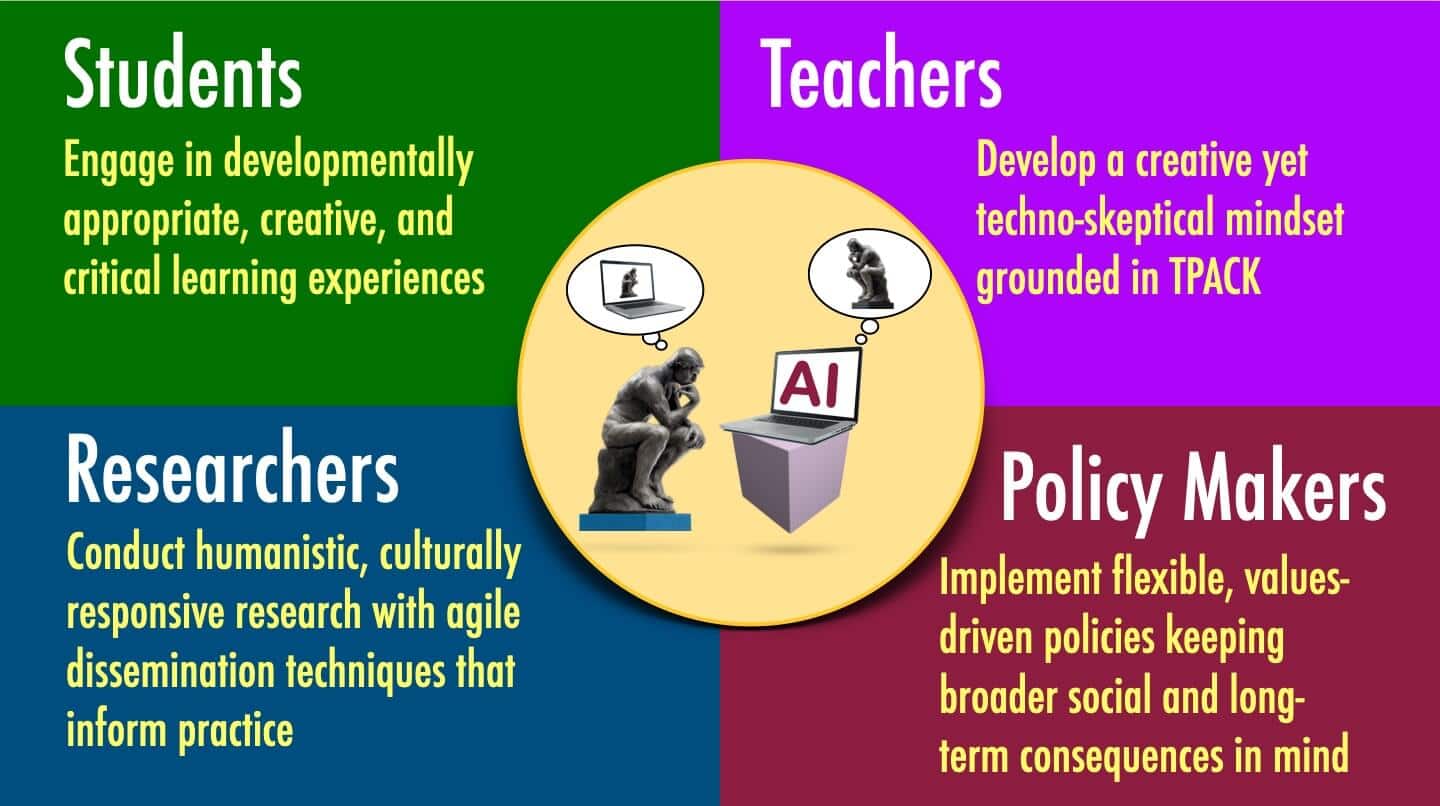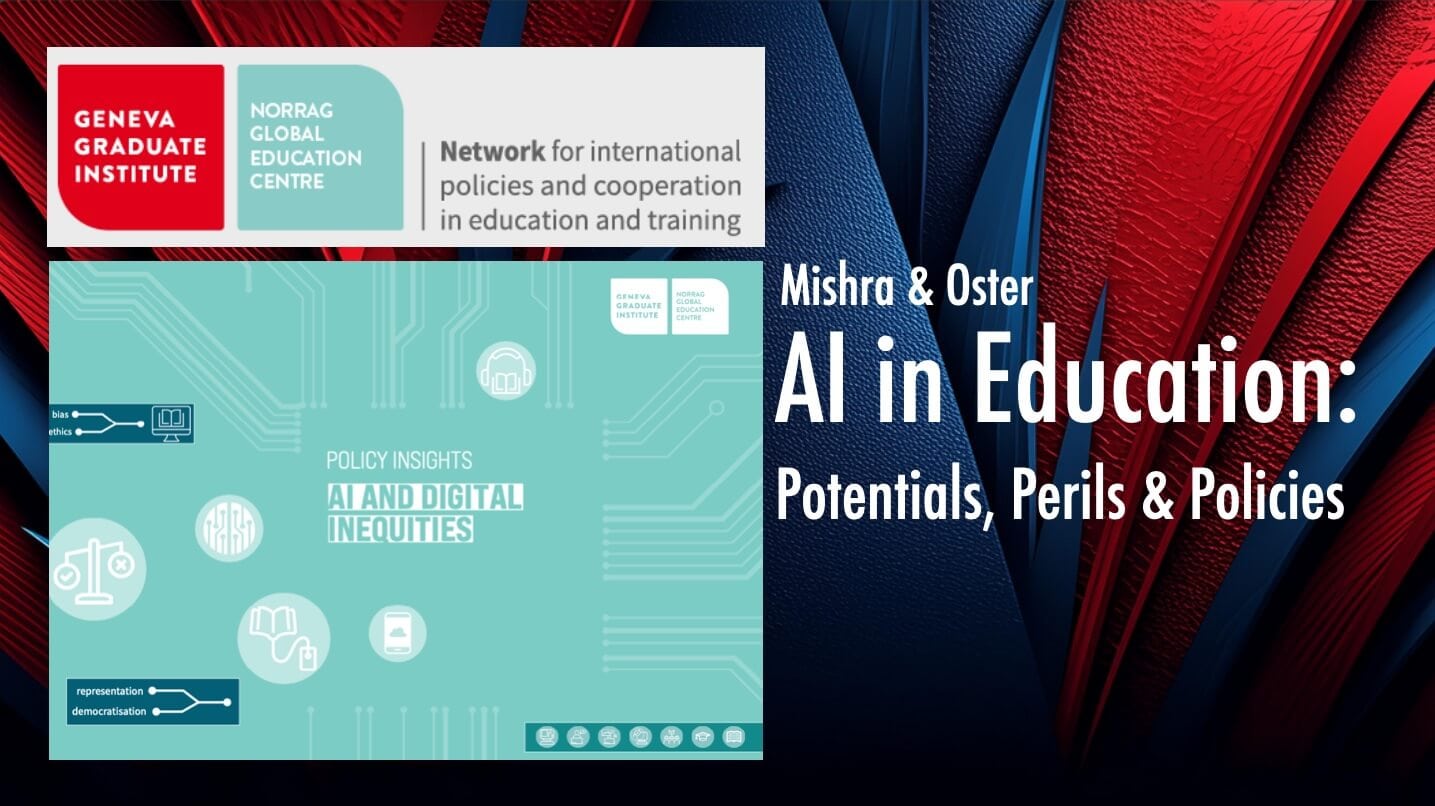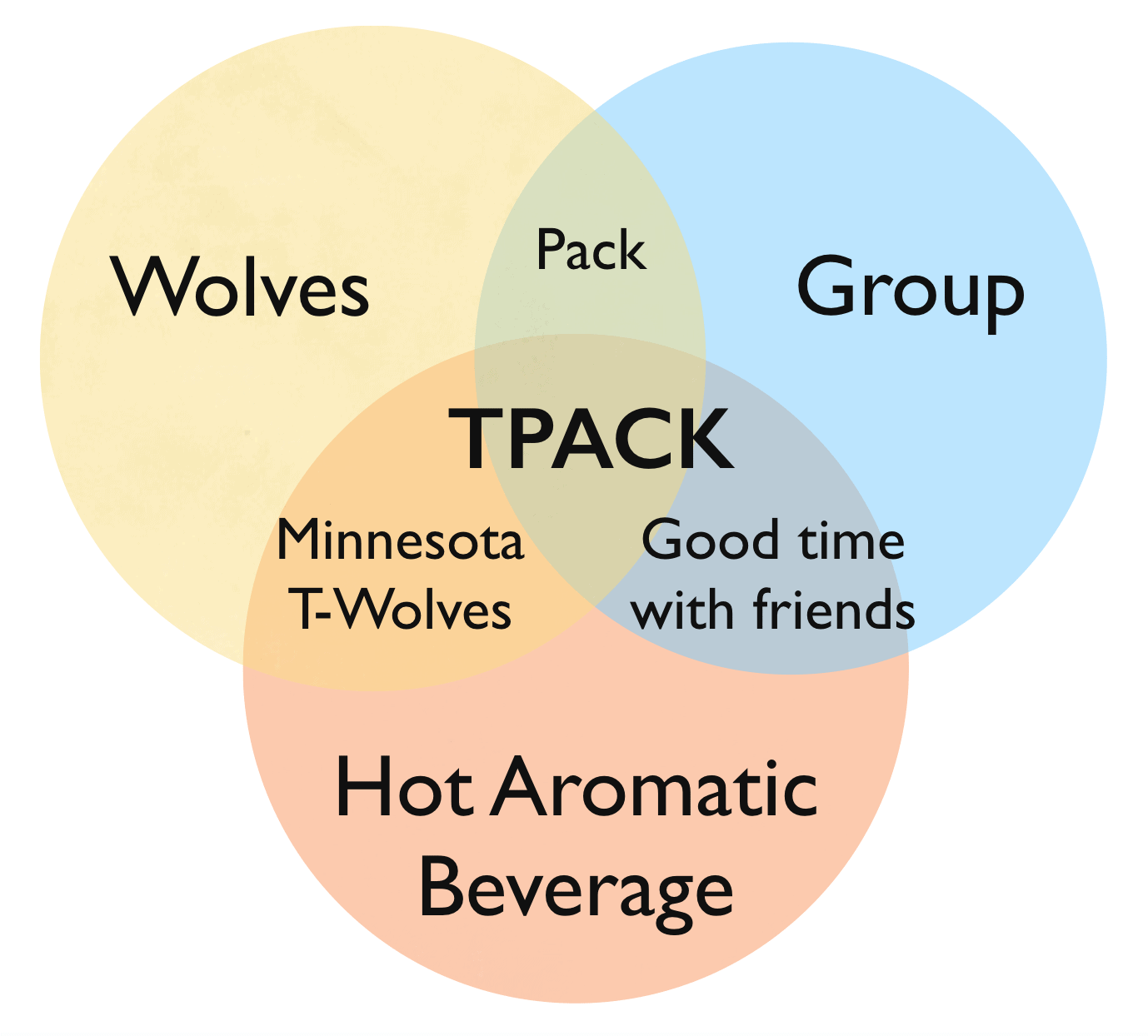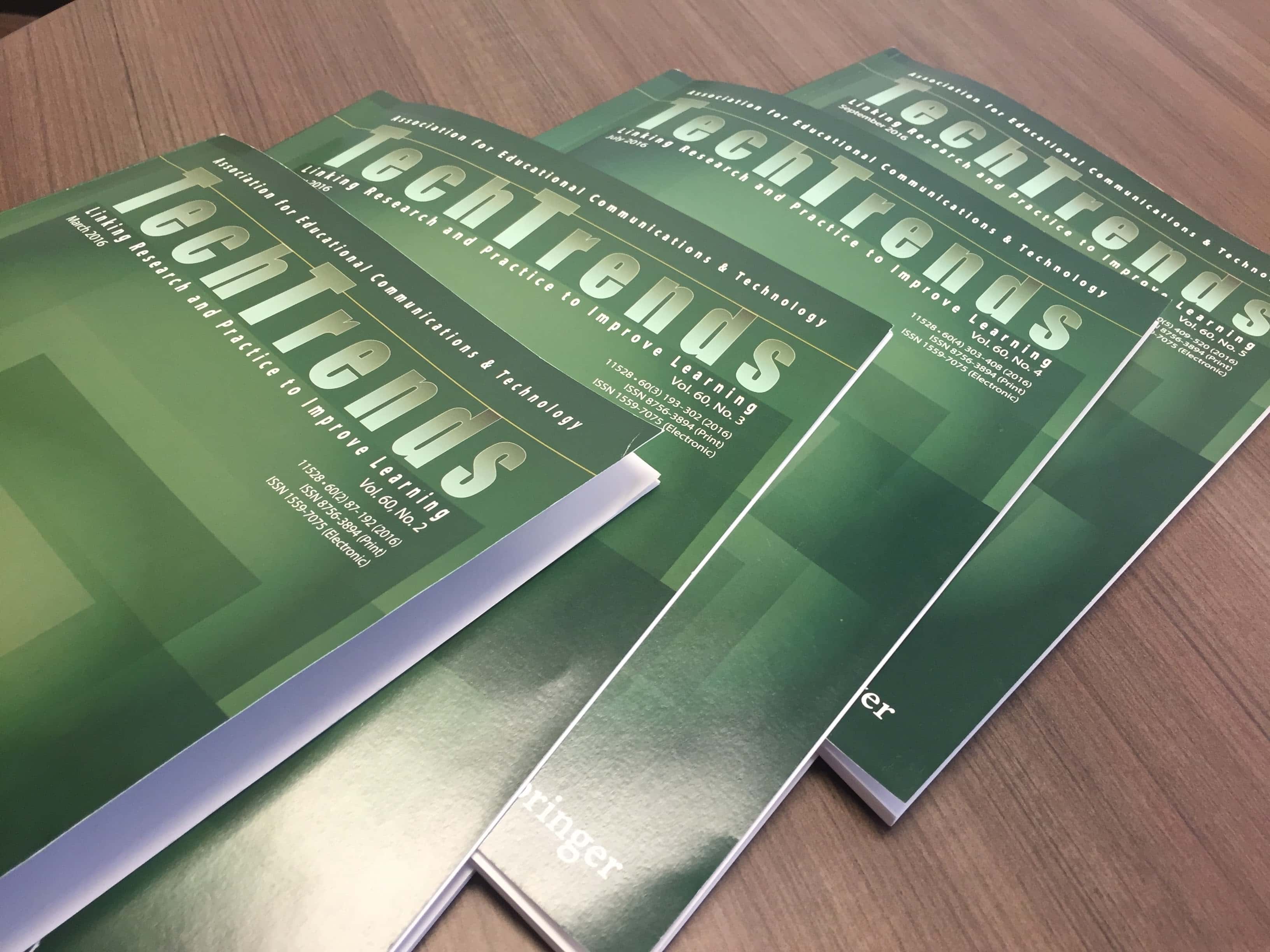NORRAG, based at the Geneva Graduate Institute, is a global network focused on international education policy and cooperation, known for its commitment to addressing under-researched topics related to education quality and equity and amplifying voices from the Global South. One of their recent projects was to discuss AI’s role in education and its implications for equity across all education levels. This effort has culminated in a report titled AI and Digital Inequities that offers insights into AI and digital inequities, aiming to inform future changes and transformations in policy and practice. Their latest report on AI and Digital Inequities has one piece by Nicole Oster and me Generative AI in Education: Potentials, Perils & Policies.
We recommend reading our piece in full (it’s pretty short) but we provide some key takeaways below the citation:
Mishra, P., & Oster, N. (2024). AI in Education: Potentials, Perils & Policies. In Faul, M. V. (Ed.). (2024). AI and Digital Inequities. Policy Insights #04. NORRAG.
Key takeaways:
- Students should engage in developmentally appropriate, creative and critical learning experiences.
- Teachers should develop a creative yet techno-sceptical mindset grounded in technological pedagogical content knowledge (TPACK).
- Researchers should conduct humanistic, culturally responsive research with agile dissemination techniques that inform practice.
- Policy makers should implement flexible, values-driven policies with broader social and long-term consequences in mind.
Addendum: We were asked for an image to capture our ideas in a simple coherent manner. For some reason the original image we submitted was not deemed acceptable. I do like what we had come up with, so just for the record is the image we had originally submitted.





0 Comments